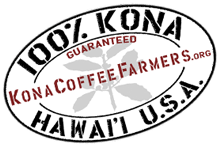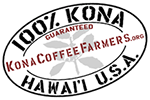Kona Coffee Farmers Association Questions to Hawaii County Mayoral Candidates
QUESTION ONE:
On October 15, 2014, the Hawaii County Council unanimously adopted Resolution No. 501-14 requesting the State Legislature to adopt legislation requiring the use of Hawaii geographic-origin names in the labeling or advertising of a Hawaii coffee blend only if the blend contains at least 51% from that origin. The Resolution noted that in 2007 the Legislature had made a finding that Hawaii’s 10% coffee blend labeling law causes “fraud” and “degrades” the name of Hawaii-grown coffee. Despite the Hawaii County Council’s formal request, over the last 5 Sessions the Legislature has failed to enact bills with this long-needed reform—bills that have been repeatedly introduced and supported by Hawaii County representatives in the Legislature. [See, for example, HB 1886 HD1 from the 2020 Session]
IF ELECTED, WILL YOU PUBLICLY SUPPORT AND FORMALLY REQUEST THAT THE LEGISLATURE ENACT THE COFFEE LABELING REFORMS SET FORTH IN RESOLUTION NO. 501-14?
IF YES, WHAT ADDITIONAL ACTIONS WILL YOU TAKE IN SEEKING ENACTMENT OF THESE REFORMS?
RESPONSES:
Ikaika Marzo: YES. I agree to requiring the use of Hawaii geographic-origin names in the labeling or advertising of a Hawaii coffee blend only if the blend contains at least 51% from that origin. I believe in preserving the natural value of our local coffee and boosting our local economy and coffee farmer workforce. I agree that the only 10% coffee blends allude to “fraud” and “degrades” the name of Hawaii-grown coffee. I will note that the 10% blends are useful for a lower price point for shoppers. Not all our local people can afford, or maybe would like a different flavor, so keeping the 10% on shelves seems acceptable, BUT the labeling must change as that is most fair and transparent.
Mitchell Roth: I believe that the integrity and value of the “Kona Coffee” brand must be protected. I also understand that there are unresolved issues within the Hawaii coffee industry on this matter as it relates to implementation timelines, impact on product sales and domestic and international marketing strategies.
I am committed to working with all stakeholders; including the Kona Coffee Farmers Association, individual growers, the Hawaii Coffee Association, the Department of Agriculture and DBEDT to identify and overcome challenges that have prohibited the introduction of successful legislation to meet the intent of 501-14. I believe this collaborative process will result in purposeful and reasonable legislation which I will advocate for.
QUESTION TWO:
Since 1998 a USDA regulation (7 CFR Sec. 319.73-2) has prohibited importation of green (unroasted) coffee beans into Hawaii and Puerto Rico, the only US commercial coffee growing areas. As noted in the regulation, importation of green coffee creates risks of spreading devastating coffee pests and diseases. As an example, “coffee berry borer” was introduced into Hawaii County in 2010 with severe economic impact on our coffee farmers. Yet the State of Hawaii has ignored, and continues to ignore, the federal regulation and has allowed tons of unroasted coffee beans to be imported annually, putting coffee farmers at risk of losing their trees and their livelihoods from “coffee rust” and other pests and diseases.
IF ELECTED, WILL YOU TAKE STEPS TO HAVE THE USDA EXPLAIN WHY IT IS NOT ENFORCING SECTION 319.73-2—PARTICULARLY IN LIGHT OF THE 2005 DENIAL BY USDA OF A FORMAL REQUEST FROM HAWAII TO AMEND THE REGULATION? [Note—the basis for the denial was that the Hawaii request posed too great a risk of introduction of coffee pests and diseases.]
RESPONSES:
Ikaika Marzo: Absolutely. It is completely unacceptable to overlook this important regulation as it is set in place to protect our local agriculture as well as our native and endemic species for generations to come. Hawaii is such a unique state, as an island, but Hawaii must stand up for itself and enforce the importance of this. Mahalo for bringing this to my attention.
Mitchell Roth: I am committed to work to determine issues preventing the enforcement all laws negatively effecting the Hawaii Coffee industry.

